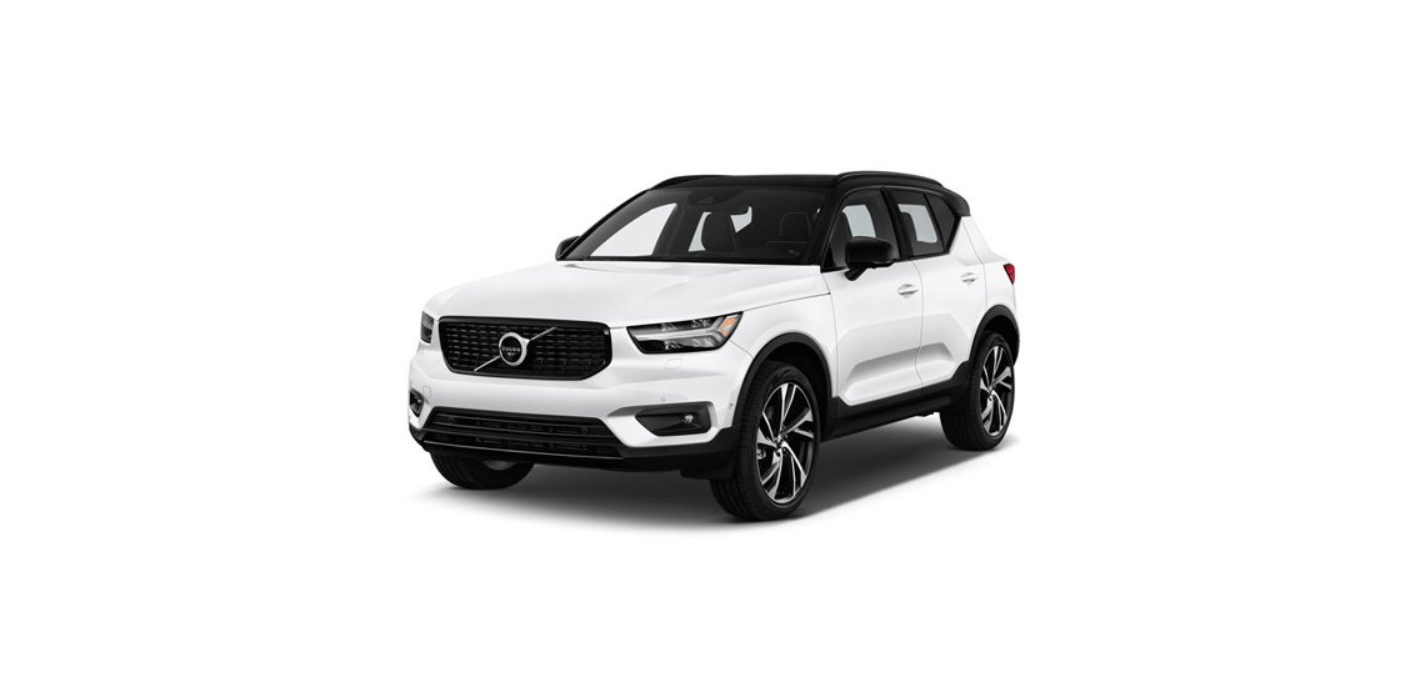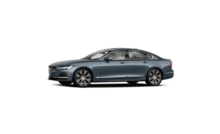Safety function
- To prevent over-revving of the engine, the gearbox control program has a protective downshift inhibitor.
- The gearbox does not permit downshifting/kick-down which would result in an engine speed high enough to damage the engine. Nothing happens if the driver still tries to shift down in this way at high engine speed – the original gear remains engaged.
- On kick-down, the car can shift down one or more steps at a time, depending on engine speed. The car shifts up when the engine has reached its maximum engine speed in order to prevent engine damage.
Launch function
Activate Launch
- Make sure the car is stationary and the wheels are pointing straight forward.
- Move to gear position D.
- Depress the brake pedal fully.
- Then fully depress the accelerator pedal.
- Release the brake pedal within 2 seconds.
Note
If the Launch function does not work, wait a few minutes and let the drivetrain cool down to a working temperature before retrying.
Gearbox
- The gearbox is part of the car’s powertrain (power transmission) between the engine and drives wheels. The function of the gearbox is to change the gear ratio depending on speed and power requirements.
- There are two main types of gearboxes, manual and automatic.
- The manual gearbox has six gears.
- The automatic gearbox has either seven or eight gears. The number of gear changes means that the engine’s torque and power range can be used effectively.
- It is also possible to select gears manually with the automatic gearbox. The driver display shows the selected gear position.
Automatic gearbox
- Overview of the gear lever and shift pattern in the driver display.
- The driver display shows the selected gear position:
- P, R, N, D or M.
Changing gear with an automatic gearbox
Changing gear
Gear positions
Parking – P
- Parking is activated with the P button ‘located next to the gear selector.
- The gearbox is mechanically blocked when the P position is engaged.
- Select position P for parking. The car can start in position P. The car must be stationary when the P position is selected.
- To park – first apply the parking bake and then select P position.
Always use the parking brake when parking on an inclined surface. Engaging a gear or the automatic transmission’s P position is not sufficient to hold the car stationary in all situations.
To be able to lock the car and arm the alarm, the gear position must be in P.
Help functions
The system will change to the P position automatically:
- if the car is switched off in position D or R.
- if the driver unfastens the seatbelt and opens the driver’s door when the car is running in a mode other than P.
To park a car without wearing the seatbelt and with the door open – exit the P position by selecting R or D again. If the car is switched off in the N position there is no automatic change-over to the P position. This makes it possible to wash the car in an automatic car wash.
Reverse – R
Select position R to reverse. The car must be stationary when the R position is selected.
Neutral – N
The car freewheels in position N. The car can start in position N. Apply the parking brake if the car is stationary with the gear selector in the N position. In order to change from the N position to another gear position, the brake pedal must be depressed and the ignition position must be II. Some gearbox variants require the engine to be running.
Drive position – D
D is the normal driving position. Shifting up and down takes place automatically based on the level of acceleration and speed. The car must be stationary when changing gear from the R position to the D position.
Note
It is possible to change between D/R at very low speed without your foot on the brake in order to facilitate parking, for example.
Manual position – M
In the M position, it is possible to change gear manually. The car engine brakes when the accelerator pedal is released.
Position M is selected by moving the gear selector backwards from the D position.
- Press the gear selector to the right to “+” (plus) to change up one step and release it.
- Press the gear selector to the left to “–” (minus) to change down one step and release it.
- Press the gear selector backwards to return to the D position.
The gearbox automatically shifts down if the speed decreases to a level lower than appropriate for the selected gear, in order to avoid jerking and stalling.
Symbols and messages for automatic gearbox
To prevent damage to any drive system components, the working temperature of the gearbox is checked. If there is a risk of overheating, a warning symbol illuminates in the driver display and a text message is shown – follow the recommendation given.
| Symbol | Specification |
|---|---|
| | An error has occurred in the transmission. Read the message in the driver display. |
| | Hot or overheated gearbox. Read the message in the driver display. |
| | Temporary fault on the drivetrain. Read the message in the driver display. |
All-wheel drive
To achieve the best possible traction, the motive force is distributed automatically to the wheels with the best grip. The system continuously calculates the need for torque to the rear wheels, and can immediately redistribute up to half of the motor’s torque to the rear wheels.
All-wheel drive also has a stabilising effect at higher speeds. Under normal driving conditions, the majority of power is transmitted to the front wheels. When stationary, the all-wheel drive is always engaged in preparation for maximum traction during acceleration.
All-wheel drive characteristics vary depending on the selected drive mode.
Manual gearbox
Changing gear
The manual gearbox has six gears; the shifting pattern is shown on the gear lever.
- Depress the clutch pedal fully during each gear change.
- Take your foot off the clutch pedal between gear changes.
Reverse gear inhibitor
The reverse gear inhibitor hinders the possibility of mistakenly attempting to engage reverse gear during normal forward travel.
- Follow the shifting pattern on the gear lever and start from the neutral position before moving it to the R position.
- Engage in reverse gear only when the car is stationary.
During parking
Always apply the parking brake when parking on a slope – leaving the car in gear is not sufficient to hold the car in all situations.
Gear selector inhibitor
Automatic gear selector inhibitor
The automatic gear selector inhibitor has special safety systems.
From park position – P or neutral position – N
In order to move the gear selector from the P or N position to another gear position, the engine must be running.
If the gear selector is in the N position and the car has been stationary for at least 3 seconds (irrespective of whether the engine is running) then the gear selector is locked.
Message in the driver display
If the gear selector is inhibited a message is shown in the driver display e.g. Gear lever Press brake pedal to activate gear lever. The gear selector is not inhibited mechanically.
Gear shift indicator
For eco-driving during manual gear changing, it is important to drive in the right gear and to change gear in good time.
With manual gearbox
An up-arrow indicates a recommended change to a higher gear, and a down-arrow is a recommended change to a lower gear.
With automatic gearbox
The gear shift indicator shows the current gear in the driver display and indicates recommended shifting to a higher gear by a flashing plus sign.
Note
On automatic cars, the gear shift indicator is only available in certain markets.


